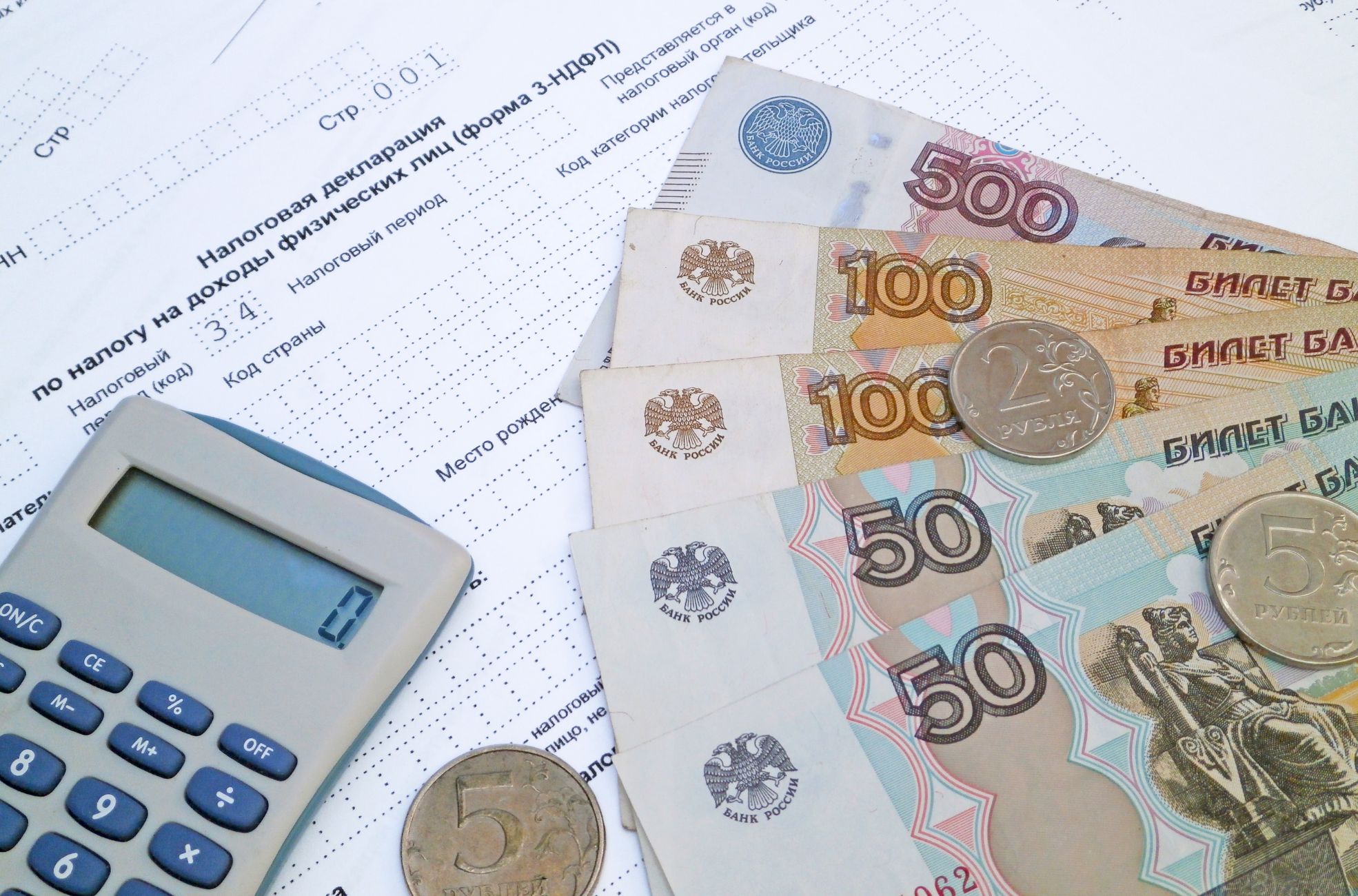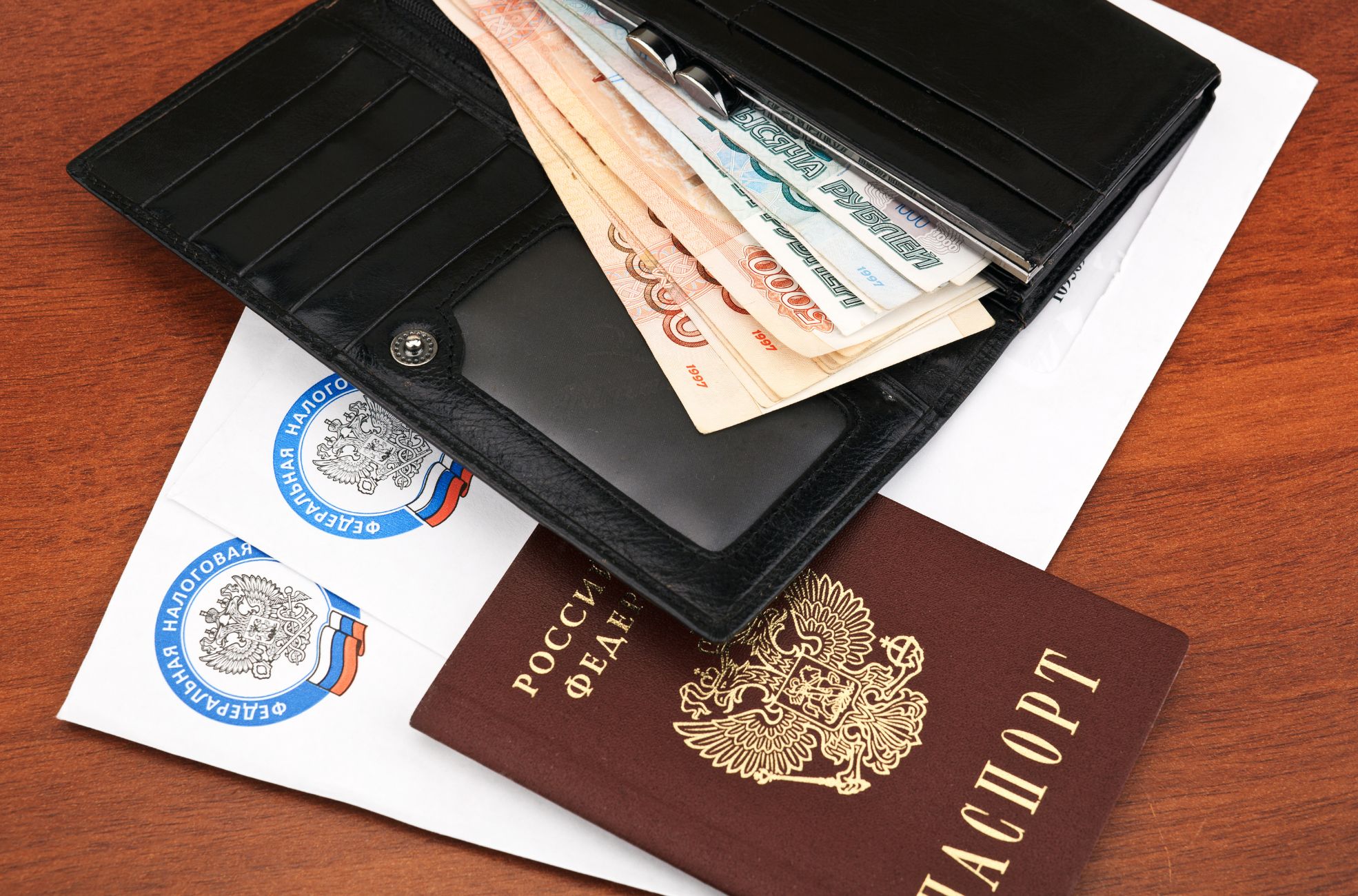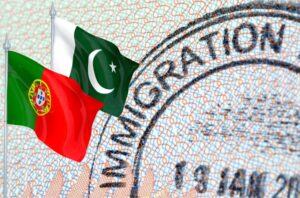Navigating the complexities of the Russian tax system requires a solid understanding of tax planning strategies for Russians, whether they are residing within the country or contemplating international investment opportunities. This article delves into the essential aspects of the Russian tax code, outlining the pivotal role of tax residency and its implications for both individuals and businesses. As tax residents and non-residents face distinct tax obligations, we look at maximizing deductions, optimizing business taxes, and exploring international tax residency as a strategic move.
It also illuminates the key tax issues, deadlines, and documentation required to maintain compliance and make informed decisions in tax planning. Whether you are an individual seeking to capitalize on personal income tax benefits or a company looking to leverage corporate tax strategies, we offer valuable insights into navigating the fiscal landscape in Russia.
The Russian Tax System
Russian Tax Law
The Russian tax system has seen significant changes, leading to the current tax code that was rolled out in stages from 1998 to 2003. This comprehensive code is the cornerstone of taxation in Russia and contributes significantly to the nation’s GDP. It includes various taxes, such as federal, regional, and local, each with its regulations and rates.
Identifying Your Tax Residency
Figuring out your tax residency status is crucial in the Russian tax system. The tax consequences for individuals and companies vary greatly depending on whether they’re considered residents or non-residents. Residency is mainly determined by how long you stay in Russia within a calendar year.
If you’re in Russia for more than 183 days per year and have a permanent residence permit, you’re recognized as a tax resident. This means you’re subject to lower tax obligations than non-residents. On the other hand, if you spend less than 182 days in the country, you’re categorized as a non-resident and face a different tax structure.
Federal and Regional Tax Rates
The Russian Federation uses a three-tier tax structure that includes federal, regional, and local taxes. Federal taxes are comprehensive and include levies such as value-added tax (VAT), individual income tax, and corporate profits tax. For instance, VAT is usually set at 20% for most goods and services, with some items taxed at a reduced rate of 10% or exempt from VAT.
Regional and local taxes typically focus on assets, including taxes on corporate property, vehicles, and land. The rates for these taxes aren’t uniform; for example, property tax rates can range from 0.1% to 2%, depending on the property’s assessed value since January 1 of that year.
Key Taxation Dates and Deadlines
For individuals and businesses, keeping track of key taxation dates and deadlines is essential to avoid penalties. The Russian tax year aligns with the calendar year, starting on January 1 and ending on December 31. You must file your returns using the official form, known as the Tax Declaration, with the Federal Tax Service by April 30 of the year following the tax year.
The deadline for tax payment is July 15. You should keep your payment documents for at least four years, as you might need them for future reference or during audits.

Personal Income Tax Planning
Maximizing Tax Deductions
Understanding how to maximize tax deductions is essential for individuals in Russia. Deductions are available for a range of expenses, including property purchases, education costs, medical treatments, and charitable contributions.
For instance, you can deduct up to USD 540 (50,000 rubles) for educational expenses per child and up to 25% of your income taxed at progressive rates for donations to approved non-commercial organizations. Additional family deductions include USD 15 (1,400 rubles) for the first two children and USD 32 (3,000 rubles) for the third and subsequent children, which can lead to considerable tax savings.
Investment Income Considerations
For investment income, residents are taxed at the progressive rate for rental income. At the same time, non-residents are subject to a 30% rate. Capital gains from the sale of property and assets are taxed similarly. However, residents can exclude up to USD 10,790 (1 million rubles) for real estate and USD 2,670 (250,000 rubles) for other property from their annual taxable income. Additionally, the sale of real estate held for over five years and income from the sale of shares in Russian and foreign companies after five years of ownership are not taxed, promoting long-term investment.
Retirement Savings Tax Benefits
Contributions to approved pension funds or retirement savings plans can reduce taxable income, offering immediate tax relief and promoting the growth of retirement funds.
Managing Real Estate Taxes
Understanding property tax rates and property valuations can assist in planning and potentially reducing tax obligations. A significant tax benefit is available for foreign tax residents purchasing property, with a deduction of up to USD 21,580 (2 million rubles), plus interest payments up to USD 32,370 (3 million rubles). Additionally, non-family members’ gifts of real estate, shares, and vehicles incur taxes of 13% or 15%. In contrast, gifts from immediate family members are exempt. Non-residents receiving gifts are taxed at 30%.
Business Tax Optimization
Corporate Tax Strategies
Entities operating within the country with tax disputes can utilize credit relief for taxes paid abroad, ensuring they don’t pay more than what is required by domestic law. Foreign entities’ income generated from local commercial activities and passive sources is subject to taxation. The rate for foreign companies with a permanent establishment is 20% on profits, and they may also be subject to withholding tax at varying rates.
The country’s network of tax treaties can offer reductions on the tax burden for dividends, potentially lowering rates. Regional and trade incentives may include profit tax rate reductions or property tax exemptions. However, these are scheduled to conclude by 2023.
Companies engaged in research or associated with the Skolkovo Innovation Center projects are eligible for a decade-long exemption from corporate taxes. IT and technology firms can take advantage of a reduced income tax rate of 3% and decreased net social contributions.
A range of expenses, including depreciation, interest, bad debt, R&D, and social contributions, can be deducted to reduce taxable income. Tax credits are available to offset the amount owed. Companies must file their annual return by March 28 of the year following the reporting period. Tax payments are made based on the firm’s actual monthly or quarterly results.
Small Business Tax Concessions
Small business owners can choose from multiple tax systems, such as the general taxation system, a single tax on assigned income, and a simplified tax system that exempts qualified businesses from certain taxes.
Sole traders can opt for an alternative tax system, which relieves them from the obligation to file corporate tax reports. The government has suggested further benefits for SMEs, with proposals including a VAT exemption for those with revenues under USD 21,520,000 (2 billion rubles). These proposals aim to ease tax compliance and expand the transitional tax regime in conjunction with the automated, simplified taxation regime.
Value Added Tax (VAT) Planning
Businesses, including foreign entities providing electronic services to Russian consumers, are required to register for VAT. Companies can reclaim VAT on a variety of expenses, and VAT returns are filed quarterly. A VAT refund is claimable once the cumulative tax payments surpass USD 21,520 (2 million rubles).
The procedure for VAT recovery mandates electronic submission of tax returns by the 25th of the month after the tax period’s conclusion. To be eligible for VAT offset, registration as a VAT payer is necessary. Recoverable VAT encompasses amounts spent on business trips and entertainment expenses that are deductible for profit tax purposes.
The VAT invoice, or Schet-Faktura, is essential for claiming recoverable VAT and can be issued in either hardcopy or electronic format.
International Taxation and Transfer Pricing
Companies must adhere to transfer pricing and international tax regulations, ensuring transactions between related parties are at market value. Foreign companies with several offices or permanent establishments in the country can designate a single office to manage VAT declarations and payments for all operations. This may simplify tax administration and aid in tax liability optimization.
Maintaining accurate records and adhering to tax regulations is imperative for companies to leverage the efficiency of any available tax strategies.

Gaining Tax Residency In A Foreign Country
If you’re a Russian considering tax planning strategies, gaining tax residency in a foreign country could be a strategic decision. This often involves participating in residency or citizenship by investment programs, which many countries offer to attract foreign capital and stimulate their economies. These programs provide a lawful path for individuals to acquire residency rights and, potentially, citizenship in return for a substantial investment in the host country.
Tax-Friendly Countries With Residency By Investment Programs
Nations worldwide offer residency by investment programs, each with unique criteria and advantages. They aim to entice investors by allowing them to become tax residents, potentially resulting in a more advantageous tax regime than their home country. For instance, Russia has initiated an investor immigration program to attract foreign investors, including those from India, China, and various countries in Africa and the Middle East. The program has diverse investment avenues, from social projects to real estate, with varying investment thresholds depending on the location and type of investment.
Russia’s program is noted for its more accessible investment requirements than other European nations. For example, investing in real estate development in the Far East region requires an investment of USD 285,000 (3,074 rubles). In contrast, the Moscow region requires USD 360,000 (approximately 3,385 rubles). The program also provides versatility with both active and passive investment choices, allowing investors to select the option that aligns with their financial objectives.
How To Apply For A Residency or Citizenship By Investment Program
The application process for a residency or citizenship by investment program typically involves a sequence of steps, beginning with selecting an appropriate investment option and ensuring it fulfills the program’s stipulations. In Russia, the investment must be documented with the Russian Federal Agency for State Property Management and retained for a predetermined duration, generally three years for business ventures and varying for real estate investments.
Applicants must also satisfy other prerequisites, such as possessing a clean criminal record, a valid passport, and passing a health examination. After meeting these requirements, one can obtain a temporary resident visa, which can evolve into permanent residency after a year, and eventually, the possibility of citizenship after five years of residency, contingent upon maintaining the investment.
These programs, while potentially leading to reduced tax liabilities and the option of citizenship, entail certain obligations. For instance, foreign investors in Russia are liable for a uniform income tax rate of 13% on all income categories. Additionally, adherence to Russian tax regulations is mandatory, which includes the submission of tax returns and payment of taxes on income sourced in Russia. Tax registration and obtaining a tax identification number are necessary for those intending to reside for more than half the year.
For assistance with the application process, there are specialized firms that can facilitate the procedure. They offer tailored support, minimize the cost and need for multiple visits, and provide expert advice to help applicants navigate the process efficiently.
Cross-Border Tax Planning
Understanding Double Taxation Treaties
DTTs are critical for individuals and businesses involved in multiple countries’ financial activities. Russia’s network of DTTs provides relief from double taxation. It includes provisions for reduced withholding taxes on dividends, interest, and royalties. For Americans, the DTT with Russia clarifies how income earned in either country will be taxed to prevent double taxation. However, the absence of an estate tax treaty with the US could have implications for estate planning.
Managing Offshore Accounts and Compliance
For Russian tax residents with international financial interests, compliance with reporting requirements is essential. They must inform the FTS about the opening and operation of foreign bank accounts. Despite not officially adopting FATCA, Russian financial institutions often adhere to its regulations, as evidenced by their registration with the IRS.
US taxpayers, including those residing in Russia, are obligated by tax legislation to declare their global income and foreign financial assets on their US tax returns, such as life insurance, retirement accounts, and shares in foreign entities.
Tax Implications of Immigration or Emigration
Relocating to or from Russia can have substantial tax consequences. Non-residents are subject to a range of tax rates based on their income sources. At the same time, US expatriates must continue to file tax returns with the IRS, reporting their worldwide income. The DTT can mitigate some tax obligations for cross-border income. US persons must also report foreign real estate, including any rental income or gains from sales.
Consulting with International Tax Professionals
Navigating the intricacies of international taxation warrants professional advice. Tax experts can provide insights into the various tax authorities, obligations, and potential benefits under Russia’s tax regime. They can offer guidance on the implications of regional incentives and help ensure compliance with the reporting requirements for controlled foreign corporations. With the FTS implementing electronic reporting for international tax cooperation, professional assistance is invaluable in avoiding penalties and fulfilling all necessary disclosures, including FBAR and FATCA.
Chart Your Financial Future
Navigating the complexities of tax planning and finance requires a keen understanding of the rules and an eye toward strategic foresight. For Russians, whether residing at home or abroad, optimizing tax obligations means staying informed and proactive.
Crafting a tax strategy that aligns with personal and business goals while adhering to legal requirements is no small feat. It’s about finding a balance between compliance risks and savings. Remember that each decision can have significant fiscal implications as you wrestle with deadlines, deductions, and declarations. The intricacies of local regulations and international agreements beckon for a meticulous approach to your financial blueprint.
Whether you’re managing personal finances, running a business, or considering global mobility, thoughtful preparation today can lead to a thriving financial landscape tomorrow. Embrace the journey with diligence and the support of tax professionals to navigate these waters with precision.
FAQs
How Are Russian Citizens Taxed?
Russian citizens are taxed based on their residency status. Tax residents, defined as those who stay in Russia for more than 183 days in a calendar year, are taxed at a rate of 13% on their worldwide income up to 5 million rubles. Income above this threshold is taxed at 15%. Non-residents are taxed at a flat rate of 30% on their Russian-sourced income. The Russian tax system also includes VAT at a general rate of 20%, with certain items taxed at 10%.
Does Russia And The US Have A Tax Treaty?
Yes, Russia and the US have a tax treaty in place, the U.S.-Russia Income Tax Convention, which has been in force since 1994. The treaty aims to avoid double taxation and prevent fiscal evasion regarding taxes on income and capital.
Does Russia Allow Dual Citizenship?
Russian law allows dual citizenship but requires individuals to notify the Federal Migration Service about holding foreign citizenship or a residence permit in another country. Failure to provide this notification can result in fines. Individuals with dual citizenship need to understand their obligations in both countries, especially concerning military service and tax liabilities.





